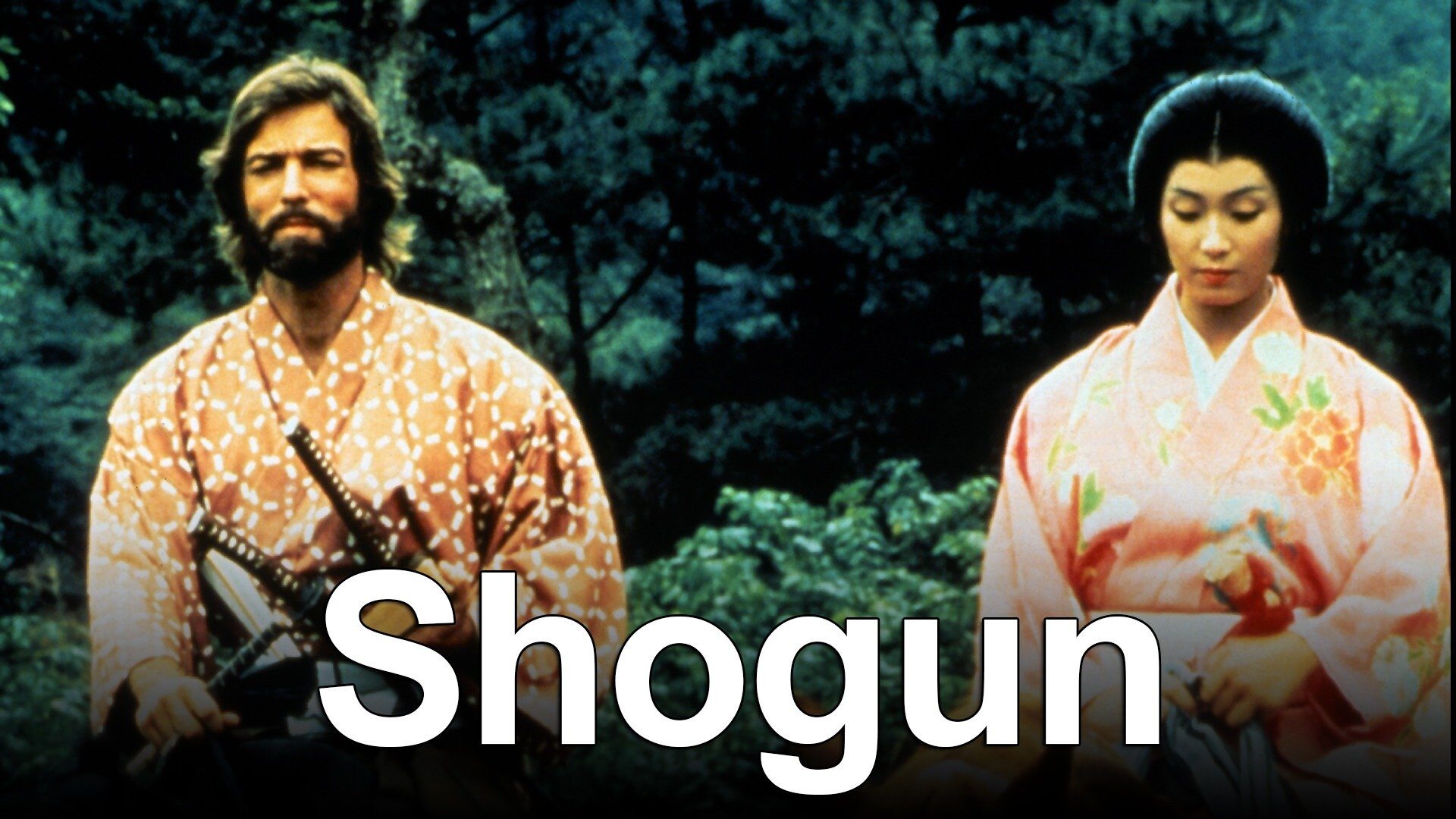
Shogun is a classic movie that has captured the hearts of millions around the world. Released in 1980, this epic historical drama is based on the novel written by James Clavell, which was inspired by true events. Set in feudal Japan during the 17th century, Shogun takes viewers on an unforgettable journey of culture, honor, and power.
In this article, we will delve deep into the world of Shogun and explore 43 fascinating facts about the movie. From its development and production to the iconic cast and the impact it had on popular culture, we will uncover intriguing details that even the most devoted fans might not be aware of.
So, grab your katana, prepare your mind for adventure, and join us as we unravel the secrets behind one of the most beloved movies in cinematic history.
Key Takeaways:
- Shogun” is a captivating film set in feudal Japan, exploring the clash of cultures, political intrigue, and the beauty of Japanese landscapes, captivating audiences with its rich storytelling and stunning visuals.
- “Shogun” has had a lasting impact on pop culture, sparking renewed interest in Japanese history and culture, and remains a timeless classic that continues to captivate viewers with its engrossing storytelling and powerful performances.
Shogun was released in 1980.
This historical drama, based on the novel by James Clavell, hit theaters and mesmerized viewers with its rich storytelling.
The film is set in feudal Japan.
Shogun takes place in the 17th century during a period of fierce political and cultural change in Japan known as the Edo period.
It was directed by Jerry London.
Renowned TV director Jerry London took the helm of Shogun, bringing his expertise to the big screen.
Richard Chamberlain played the lead role.
Richard Chamberlain portrayed John Blackthorne, a British sailor who finds himself caught in the power struggles of feudal Japan.
The film explores the clash of cultures.
Shogun delves into the collision of Western and Eastern values, customs, and ways of life, creating a fascinating narrative.
It was filmed on location in Japan.
The production team spared no expense and shot Shogun on stunning Japanese landscapes, providing an authentic backdrop for the story.
The cast includes notable Japanese actors.
A talented ensemble cast, including Toshiro Mifune and Yoko Shimada, contributed to the film’s authenticity and brought the characters to life.
Shogun was a major TV event.
Originally airing as a television miniseries, the film was widely anticipated and drew in millions of viewers across the world.
It received critical acclaim.
Shogun was praised for its attention to detail, compelling performances, and immersive storytelling, earning admiration from critics and audiences alike.
The film won multiple awards.
Shogun garnered several prestigious awards, including three Golden Globe nominations and a Primetime Emmy Award for Outstanding Limited Series.
The budget was high.
With its lavish production design and extensive shooting locations, Shogun had a considerable budget for its time, reflecting the commitment to quality.
The costumes showcased intricate details.
The costume department paid meticulous attention to historical accuracy, creating stunning period attire that added to the authenticity of the film.
Shogun features intense battle sequences.
The film’s gripping action scenes and epic battles add excitement and showcase the martial prowess of the samurai warriors.
It explores the intricacies of samurai culture.
Shogun delves into the strict code of honor and loyalty followed by the samurai, shedding light on their way of life.
The film portrays political intrigue and power struggles.
Amidst the breathtaking backdrop of feudal Japan, Shogun weaves a tale of treachery, alliances, and the quest for ultimate power.
Shogun immerses viewers in a different era.
The film’s attention to historical detail and atmospheric cinematography transports audiences back to 17th-century Japan.
It sparked renewed interest in Japanese history and culture.
Shogun ignited curiosity among viewers, leading to a surge in popularity of Japanese literature, art, and history.
The film’s soundtrack enhances the viewing experience.
A captivating musical score composed by Maurice Jarre adds depth and emotion to Shogun’s captivating narrative.
It presents a complex protagonist.
John Blackthorne’s character development throughout the film, as he navigates a foreign land and its customs, makes for a compelling journey.
Shogun highlights the beauty of Japanese architecture.
The film showcases stunning traditional Japanese buildings, gardens, and temples, immersing viewers in the elegance of the era.
It features authentic Japanese language and dialogue.
Shogun incorporates the use of Japanese language and subtitled dialogue, adding to the authenticity of the setting and characters.
The film addresses themes of love and forbidden relationships.
Amidst the turmoil of feudal Japan, Shogun explores the complexities of romance and the barriers imposed by societal norms.
Shogun was a cultural phenomenon.
The release of the film led to a surge in interest in Japanese culture, driving tourism to Japan and inspiring further exploration of its history.
It has had a lasting impact on pop culture.
Shogun left an indelible mark on the entertainment industry, inspiring subsequent films, TV shows, and even video games set in feudal Japan.
The film’s success propelled Richard Chamberlain’s career.
Richard Chamberlain’s captivating performance in Shogun solidified his status as a leading actor and opened doors for future roles.
Shogun depicts the struggle for power in Japan.
The film explores the ruthless quest for dominance among warlords, highlighting the intricacies of the feudal hierarchy.
It has gained a cult following.
Shogun’s enduring appeal has cultivated a dedicated fan base, drawn to its compelling narrative and immersive depiction of feudal Japan.
The film showcases the beauty of Japanese landscapes.
From lush forests to serene rivers, Shogun captures the breathtaking natural beauty of Japan, creating a visual feast for the eyes.
Shogun is a testament to brilliant storytelling.
The film’s engaging plot, filled with political intrigue, love, and war, keeps viewers on the edge of their seats from beginning to end.
It features intricate plot twists.
Shogun keeps audiences guessing with its unexpected turns and surprises, weaving a complex web of alliances and betrayals.
Shogun’s cinematography is visually stunning.
The skillful camerawork and breathtaking compositions transport viewers into the heart of feudal Japan, creating a visual masterpiece.
The film was an international success.
Shogun transcended cultural barriers and found a global audience, captivating viewers from various countries with its universal themes.
Shogun delves into the inner conflicts of its characters.
The film delves deeply into the emotional struggles faced by its characters, portraying their internal battles with depth and nuance.
It explores the concept of honor.
Shogun examines the concept of honor and its impact on individuals and society, shedding light on the importance of integrity and loyalty.
The film received high praise for its historical accuracy.
Historical experts lauded Shogun for its meticulous attention to detail, ensuring an authentic portrayal of the era.
Shogun captivates with its rich character development.
Each character in the film undergoes a transformative journey, allowing audiences to connect deeply with their hopes, fears, and aspirations.
It explores the complexities of political alliances.
The ever-shifting landscape of political alliances and rivalries in feudal Japan serves as a captivating backdrop for Shogun’s narrative.
Shogun showcases the bravery and resilience of its characters.
In the face of adversity and the challenges of a foreign land, the characters in the film display remarkable courage and tenacity.
The film explores the role of women in feudal Japan.
Shogun sheds light on the complex societal expectations and restrictions faced by women during this turbulent era.
Shogun was a labor of love.
The dedication and passion of the cast and crew are evident in every frame of the film, creating a truly immersive cinematic experience.
The film’s dialogue is rich and thought-provoking.
Shogun’s script is filled with memorable lines that delve into the human condition, leaving a lasting impact on viewers.
Shogun was a breakthrough in showcasing Japanese culture.
The film played a pivotal role in introducing Japanese culture to a global audience, fostering a greater appreciation for its traditions and history.
Shogun remains a timeless classic.
Decades after its release, Shogun continues to captivate viewers with its engrossing storytelling, powerful performances, and stunning visuals.
Conclusion
Shogun is an incredible movie that captivates audiences with its rich storyline, stunning visuals, and brilliant performances. Whether you are a fan of historical dramas or simply enjoy a compelling tale, Shogun offers a thrilling ride from start to finish.
The movie takes you on a journey through feudal Japan, immersing you in a world of samurais, honor, and political intrigue. With complex characters and intense plot twists, it keeps viewers on the edge of their seats, eagerly anticipating what will happen next.
Shogun is not just a movie; it is an experience. Its attention to detail and dedication to historical accuracy make it a standout in its genre. From the breathtaking scenery to the authentic costumes, every aspect of the film transports you to a different time and place.
If you haven’t seen Shogun yet, make sure to add it to your must-watch list. Prepare to be enthralled by its epic tale of loyalty, betrayal, and the struggle for power. Shogun is a true gem in the world of cinema and will leave you wanting more.
FAQs
1. What is the movie “Shogun” about?
The movie “Shogun” is a captivating historical drama set in feudal Japan. It follows the story of an Englishman named John Blackthorne, who becomes shipwrecked in Japan and finds himself thrust into a world of samurais, political intrigue, and cultural clashes.
2. Is “Shogun” based on a true story?
Yes, “Shogun” is loosely based on the novel of the same name by James Clavell, which was inspired by the historical events during the reign of Tokugawa Ieyasu, the first shogun of the Edo period in Japan.
3. Who are the main characters in “Shogun”?
The main characters in “Shogun” include John Blackthorne, the English ship captain; Toranaga, a powerful daimyo; Mariko, Toranaga’s trusted advisor; and Lady Toda, Toranaga’s concubine. Each of these characters plays a significant role in the story and adds depth to the plot.
4. Is “Shogun” a historically accurate movie?
While “Shogun” takes some liberties for storytelling purposes, it is known for its attention to historical and cultural detail. The film showcases the customs, traditions, and political landscape of feudal Japan, providing viewers with an immersive and authentic experience.
5. What makes “Shogun” worth watching?
“Shogun” is worth watching for its compelling storyline, outstanding performances, and breathtaking visuals. It offers a unique blend of drama, action, and historical significance, making it a must-see for movie enthusiasts and history buffs alike.
Was this page helpful?
Our commitment to delivering trustworthy and engaging content is at the heart of what we do. Each fact on our site is contributed by real users like you, bringing a wealth of diverse insights and information. To ensure the highest standards of accuracy and reliability, our dedicated editors meticulously review each submission. This process guarantees that the facts we share are not only fascinating but also credible. Trust in our commitment to quality and authenticity as you explore and learn with us.


